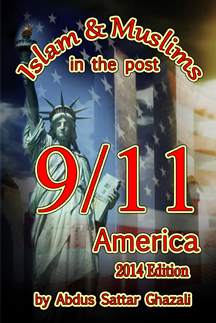OpEd News - April 3, 2018
50 years ago they failed to shut him down
By James Wall
Were Vietnam and poverty the issues that prompted that evil moment when King died? King had long faced powerful forces that wanted him shut down. James Earl Ray fired the shot that ended the life of a civil rights icon. What the shot did not do was end the movement King inspired.
::::::::
The first time I almost met Martin Luther King, Jr., would have been at his father's Ebenezer Baptist church, in Atlanta, Georgia. I was one of three Emory University seminary students assigned to visit MLK, Sr's church. We were part of a class called Race.
After the Sunday morning worship service, MLK, Sr., took us to his office for an interview. As we were leaving, Dr. King invited us to return the following Sunday, adding, "My son Martin will be delivering his first sermon after receiving his Ph.D. from the Boston School of Theology."
None of us returned. That missed opportunity remains at the top of my personal list of Bad Decisions While Growing Up.
I told that story to MLK, Jr., when, as editor of the Christian Adocate, a United Methodist pastor's magazine, I interviewed him more than a year before his assassination on a Memphis, Tennessee, motel balcony.
He was killed 50 years ago this Wednesday, April 4, 1968, shot by a lone gunman from a window in a nearby boarding establishment.
What prompted my request for an interview in Chicago, was the publication of an essay which had focused on King's decision to broaden his movement's civil rights focus to include opposition to the war in Vietnam and the issue of poverty.
Were Vietnam and poverty the issues that prompted that evil moment when King died? King had long faced powerful forces that wanted him shut down. James Earl Ray fired the shot that ended the life of a civil rights icon.
What the shot did not do was end the movement King inspired.
King was in Memphis to fight for a wage increase for the city's garbage workers. This fight was part of King's effort to broaden his civil rights movement to include poverty as part of his Poor People's Campaign initiative.
In his final speech The New York Times recalls King's words that continue to inspire us to action.
"In the speech delivered the night before his death, Dr. King declared: 'The issue is injustice. The issue is the refusal of Memphis to be fair and honest in its dealings with its public servants, who happen to be sanitation workers.'"
It was King's Dream to lead this nation toward peace and justice. His life ended on April 4, 1968, but one half-century later, Penn State's Joshua Inwood insists, "With over 43 million people living in poverty in the United States today, King's ideas still hold much power."
As Inwood wrote in his essay, King was a leader who understood the necessity of taking the long view:
"In the last three years of his life and ministry King had grown frustrated with the slow pace of reform and the lack of funding for anti-poverty programs. In 1966, for example, King moved to Chicago and lived in an urban slum to bring attention to the plight of the urban poor in northern cities. His experiences in the South had convinced him that elimination of poverty was important to winning the long-term battle for civil and social rights."
Were King still with us in body as well as in spirit, I have no doubt that he would wage his struggle for peace and justice on the issues that plague us in this week's anniversary of his death, issues like Israeli IDF snipers killing at least 17 Palestinians on the northern border of a colonial-settler line that separates Gaza from Israel.
Or issues like the movement among high school students to bring an end to mass shootings like the one in Marjory Stoneman Douglas High School in Parkland, Florida. In that tragedy, the number initially reported killed was also 17.
The issue is still injustice.
James Wall served as a Contributing Editor of The Christian Century magazine, based in Chicago, Illinois, from 1999 through 2017. From 1972 through 1999, he was editor and publisher of the Christian Century magazine. Many sources have influenced Jim's writings over the years, including politics, cinema, media, American culture, and the political struggles in the Middle East. He has made more than 20 trips to that region as a journalist, during which he covered such events as Anwar Sadat's 1977 trip to Jerusalem, and the 2006 Palestinian legislative election. He has interviewed, and written about, journalists, religious leaders, political leaders and private citizens in the region.
Jim served for two years on active duty in the US Air Force, and three additional years in the USAF (inactive) reserve. He can be reached at: jameswall8@gmail.com

The Journal of America Team:
Editor in chief:
Abdus Sattar Ghazali
Senior Editor:
Prof. Arthur Scott
Disclaimer and Fair Use Notice: Many articles on this web site are written by independent individuals or organizations. Their opinions do not necessarily reflect those of the Journal of America and its affiliates. They are put here for interest and reference only. More details
Your donation
is tax deductable.
Article by
Journal Writes



